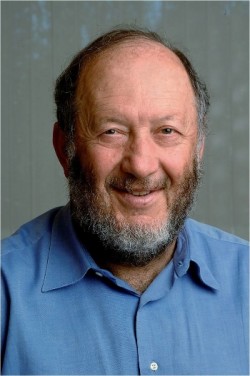Aging stem cells have clinical implications, say Stanford scientists
Aging stem cells have clinical implications, say Stanford scientists
At the risk of being overly depressing, we’re all getting older. And there’s more to bemoan than just the gray hairs and wrinkles that might be popping up. Every cell in our body is aging, including the hematopoietic stem cells that generate our blood cells and immune system. According to our release:
Specifically, the researchers found that hematopoietic stem cells from healthy people over age 65 make fewer lymphocytes — cells responsible for mounting an immune response to viruses and bacteria — than stem cells from healthy people between ages 20 and 35. (The cells were isolated from bone marrow samples.) Instead, elderly hematopoietic stem cells, or HSCs, have a tendency to be biased in their production of another type of white blood cell called a myeloid cell. This bias may explain why older people are more likely than younger people to develop myeloid malignancies.
It could also be why elderly people find it hard to shake off colds, flu and other viruses, say graduate student Wendy Pang, MD and stem cell biologist Irving Weissman, MD, who co-authored the study in today’s Proceedings of the National Academy of Sciences.
“In both mice and humans, the puzzle has been how the system ages,” said Weissman, who is also the Virginia & D.K. Ludwig Professor for Clinical Investigation in Cancer Research and a member of Stanford’s Cancer Institute. “Because HSCs in old mice and humans are derived from the HSCs they had in their youth, there are two possibilities to describe how these differences occur. Either individual, young HSCs change their gene expression patterns as they age, undergoing heritable adaptations that favor the myeloid lineage, or each young HSC already has a specific lineage bias and is battling for precious niches through the natural selection of aging, which favors those biased toward myeloid cells.” Understanding which possibility is true could help clinicians of the future encourage the survival of HSCs with more-appropriate properties in patients with age-related diseases, Weissman believes.
By Krista Conger
Stanford School of Medicine
Irving Weissman, MD.
Professor, Pathology – Stem Cell Institute
Member, Bio-X
Member, Cancer Center
Professor, Developmental Biology
Professor (By courtesy), Biology (School of Humanities and Sciences)
> Administrative Appointments
Director, Institute of Stem Cell Biology and Regenerative Medicine, Stanford University School of Medicine (2003 – present)
> Honors and Awards
Passano Award, The Passano Foundation (2009)
Rosentiel Award, Brandeis University (2009)
Fellow, American Association for the Advancement of Science (2008)
Robert Koch Award, Koch Foundation (2008)
Honoree of the Arthritis Foundation of Northern California Chapter’s 2007 Tribute Dinner, Arthritis Foundation (2007)
I & H Wachter Award, I & H Wachter Foundation (2007)
Honorary Doctorate, Mount Sinai School of Medicine (2007)
John Scott Award, City of Philadelphia (2006)
American-Italian Cancer Foundation Prize for Scientific Excellence in Medicine, American-Italian Cancer Foundation (2006)
Honorary Doctorate, Columbia University (2006)
The Commonwealth Club of California 18th Annual Distinguished Citizen Award, Commonwealth Club of California (2006)
Jeffrey Modell “Dare to Dream” Award, Jeffrey Modell Foundation (2005)
The Linus Pauling Medal for Outstanding Contributions to Science, Stanford University (2005)
Rabbi Shai Shacknai Memorial Prize in Immunology and Cancer Research, The Lautenberg Center for General and Tumor Immunology (2004)
Medal for Distinguished Contributions to Biomedical Research, New York Academy of Medicine (2004)
Alan Cranston Awardee, Alliance for Aging Research (2004)
Jessie Stevenson Kovalenko Medal, National Academy of Sciences Council (2004)
Bass Award, Society of Neurological Surgeons (2003)
Award for Outstanding Contribution to Cancer Biology, Pasarow Foundation (1989)
Election to the Institute of Medicine, National Academy of Sciences (1989)
> Professional Education
MD: Stanford University, Medicine (1965)
BS: Montana State College, Pre-med (1961)
> Graduate & Fellowship Program Affiliations
Cancer Biology
Developmental Biology
Immunology
###
* Stanford University Medical Center integrates research, medical education and patient care at its three institutions – Stanford University School of Medicine, Stanford Hospital & Clinics and Lucile Packard Children’s Hospital.
** The above story is adapted from materials provided by Stanford University School of Medicine
________________________________________________________________





















